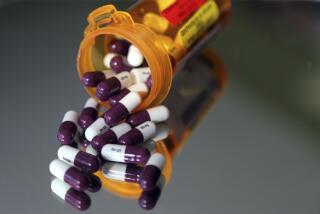Americans Spend Less on Medical Care
- Share via
WASHINGTON — Despite spiraling health care costs, Americans are using a smaller chunk of their income for out-of-pocket medical expenses than they were 30 years ago, a team of government economists reports.
The bite is about the same as in 1972-73, said the Health Care Financing Administration researchers.
The reason, says Katharine R. Levit, is that private insurance is providing more benefits--in large part because states are requiring more coverage--and employers have been unsuccessful in shifting the costs of better coverage to workers.
That’s bound to change, she predicts, as consumers are pressured to carry a larger share of the burden.
In 1988, spending from all sources for health care in the United States was nearly $540 billion--more than 11% of the gross national product that year, Levit and two colleagues reported in an article published in the summer issue of Health Affairs, a quarterly journal on health policy.
The figures tallied by Levit, Mark Freeland and Dan Waldo are the latest comprehensive figures available, they said.
Of the total, $312 billion came from private sources--including $113 billion paid by consumers out of pocket and $175 billion paid by private insurance. Federal, state and local governments contributed $228 billion.
National health expenditures have risen more than 11% annually over the last three decades, and 10.4% from 1987 to 1988.
The 1988 spending amounted to $2,124 for every man, woman and child in the United States.
Americans used about 5% of their after-tax income in 1988 on health care expenses--including their share of insurance premiums and out-of-pocket costs to meet deductibles and pay for medical care not covered by insurance.
This proportion is the same as in 1972-73 and lower than the 6.1% of after-tax income used for health care expenses in 1960-61, the researchers reported.
More to Read
Inside the business of entertainment
The Wide Shot brings you news, analysis and insights on everything from streaming wars to production — and what it all means for the future.
You may occasionally receive promotional content from the Los Angeles Times.









